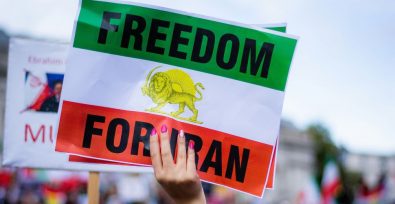After over 50 years the labor sponsorship program known as the Kafala system is being dismantled by the Saudi Arabian government. Deeply criticized by rights organizations, the Kafala system has become synonymous with labor exploitation and modern slavery conditions. The changes are poised to impact approximately 13 million migrant workers, mostly from South and Southeast Asia.
Sponsorship system enabled exploitation
The word Kafala is Arabic for sponsorship. Through this system, migrant workers had to be sponsored by their employer to be allowed to enter the country. Under the system, their legal status in the country was directly tied to their employer. That meant they couldn’t leave an abusive situation or seek legal recourse if they faced exploitation. The only way one could leave is if their employer provided an exit visa. Widely seen as creating a huge power imbalance, the system has enabled decades of exploitation.
According to the Times of India, the Saudi Press Agency reported:
“The new system allows migrant workers to change employers without needing their current employer’s approval, leave the country without an exit visa and access vital legal protections that were previously unavailable…”
The changes are much needed and come as part of Saudi Arabia’s Vision 2030. Indeed, Amnesty International recently published a report detailing the abuse of Kenyan domestic workers in Saudi Arabia. Enduring imprisonment, racism, and sexual violence, workers interviewed for the report spoke of conditions so horrific they add up to “forced labor and human trafficking.” And several other rights organizations emphasize the need for comprehensive implementation and monitoring. Without which, the promised new era will end before it even begins.
Regional shift or just a paper change?
Sadly, Saudi Arabia isn’t the only country using the Kafala system. It is just one of many Gulf States who implemented the system around the 1950s. And many in the region still maintain the system. Before, during, and after the last World Cup there was a constant parade of stories of exploitation coming out of Qatar. It is hoped that this change will continue a regional shift away from the Kafala system. Further, that it will help reduce exploitation and improve working conditions in the country.
The Times of India stated:
“By empowering employees to negotiate terms fairly, the reform also strengthens economic participation and motivation and paves the way for further reforms.”
In Saudi Arabia migrant workers make up about 42% of the population. That’s approximately 13 million people. The Vision 2030 initiative is aiming to modernize the country’s economy and enhance the rights and welfare of those millions of foreign workers. But changes in policy don’t always equal changes in practice. In the past, activists were pleased when the Qatari government introduced new laws to reform their kafala system. But in Qatar, as activists worry will happen in Saudi Arabia, full implementation is still greatly lacking.
One migrant worker who worked in Qatar for five years shared:
“Change came on paper but [not] on the ground … When you go inside the company and among the workers [you see that] only a very small change has happened. It is still appalling.”
Freedom United celebrates Saudi Arabia’s abolition of the exploitative Kafala system. However, we also stand beside those agencies calling on the Saudi government to make this not just an “on paper” change but a real shift towards protecting the rights of migrant workers. We will have to wait and see what these changes will mean in the real world for migrant workers in Saudi Arabia.
Meanwhile you can add your voice to ours and call on the Qatari authorities to deliver on the critical reforms they promised. Help take a needed step towards ending decades of labor exploitation in the region.







Freedom United is interested in hearing from our community and welcomes relevant, informed comments, advice, and insights that advance the conversation around our campaigns and advocacy. We value inclusivity and respect within our community. To be approved, your comments should be civil.
Your being a bit generous here. The Kafala system is alive and well…it’s just been given a name change.
Unless you contract has finished or you’ve not been paid. Then you still need your employers permission.
It’s a step in the right direction but it’s not gone.
This is a nice move to do away with kafala system,it will improve on how migrant workers are treated and also improve on their human rights though not sure if all the employers will follow the law I can see a little light will shed there. Kafala makes some employees like slaves not following human rights at all ,All I can say congratulations Saudi Arabia for such a move!
I beleive MBS is reforming Islam